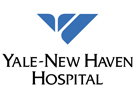
Popular Locations
- Yale New Haven Children's Hospital
- Yale New Haven Hospital - York Street Campus
- Yale New Haven Hospital - Saint Raphael Campus


5/30/2012 — The study and treatment of cancer has evolved from a black box to a blueprint, according to Vincent T. DeVita, Jr., MD, co-author of Two Hundred Years of Cancer Research published online today in The New England Journal of Medicine. Beginning with the description of the cellular origin of cancer in 1863, and the discovery of metastatic disease in 1889, the black box began to reveal what cancer was, and how it developed and affected the human body. In 1943, the first successful administration of anticancer drugs was given at Yale New Haven Hospital for the treatment of lymphoma using nitrogen mustard.
In 1953, following the discovery of the structure of DNA by Watson and Crick, the lid on cancer's black box was open and the next decade saw new realizations on the interactions between DNA and RNA. With developments for cancer research slow to progress in the 1950s and 60s, the U.S. Congress created the National Cancer Act to expand the role of the National Cancer Institute (NCI) in 1971. The act emphasized the application of research to benefit patient care, and quintupled the budget of the NCI over the next ten years.
"The stimulation of cancer research through the National Cancer Act and subsequent progress over the next three decades was explosive and resulted in the first decrease in total number of deaths from cancer in 2005," said DeVita, the Joseph and Amy Perella Professor of Medicine and former director of Yale Cancer Center. DeVita also served as the Director of the NCI from 1980-1988.
In addition to improved success with surgery, radiation therapy, and chemotherapy for cancer treatment, the last ten years gave way advances in the use of targeted therapies and immunotherapies. Cancer prevention and early detection efforts have also had a large impact on decreasing death rates from cancer.
In 2000, the sequencing of the human genome began a new era in medicine. The information now available enables patients to received treatment based on the genetic profile of their tumor, and allows oncologists to target their therapies. "Second- and third-generation deep sequencing is revealing the complexity of the cancer blueprint and no doubt will reveal networks not yet imagined," the authors wrote.
"Patience and investment in cancer research will continue to yield exciting benefits for cancer patients throughout the world," DeVita said.
The article is co-authored by Steven A. Rosenberg, MD, PhD.
N Engl J Med 2012;366:2207-14.
Yale Cancer Center (YCC) is one of only 41 National Cancer Institute (NCI-designated comprehensive cancer centers in the nation and the only such center in southern New England. Comprehensive cancer centers play a vital role in the advancement of the NCI's goal of reducing morbidity and mortality from cancer through scientific research, cancer prevention, and innovative cancer treatment. www.yalecancercenter.org
Smilow Cancer Hospital at Yale New Haven is part of the nationally recognized Yale New Haven Hospital, and is affiliated with Yale Cancer Center. Smilow Cancer Hospital, the most comprehensive cancer facility in New England, is a 14-story, 500,000-square-foot cancer hospital, which includes 168 private inpatient rooms, outpatient multidisciplinary treatment centers, 12 operating rooms, infusion suites, diagnostic imaging services, a floor for children with cancer, a specialized women's cancer center and diagnostic and therapeutic radiology services for children and adults. YNHH is accredited by the American Nurses Credentialing Center as a Magnet hospital, national confirmation of outstanding nursing care. www.ynhh.org/smilow.
7/16/2024
Smilow Cancer Hospital at Waterford earns accreditation with commendationWaterford, CT (July 16, 2024) – The Commission on Cancer (CoC), a quality program of the American College of Surgeons (ACoS), has granted a new three-year accreditation with commendation to the cancer program at Smilow Cancer Hospital at Waterford.